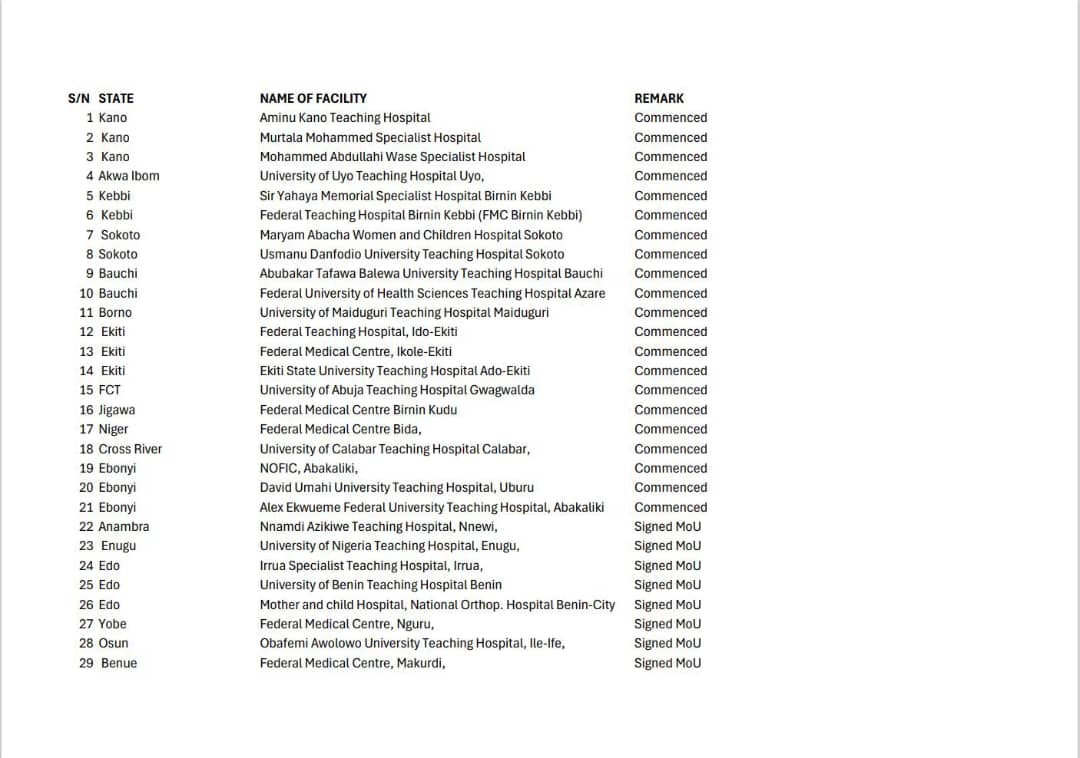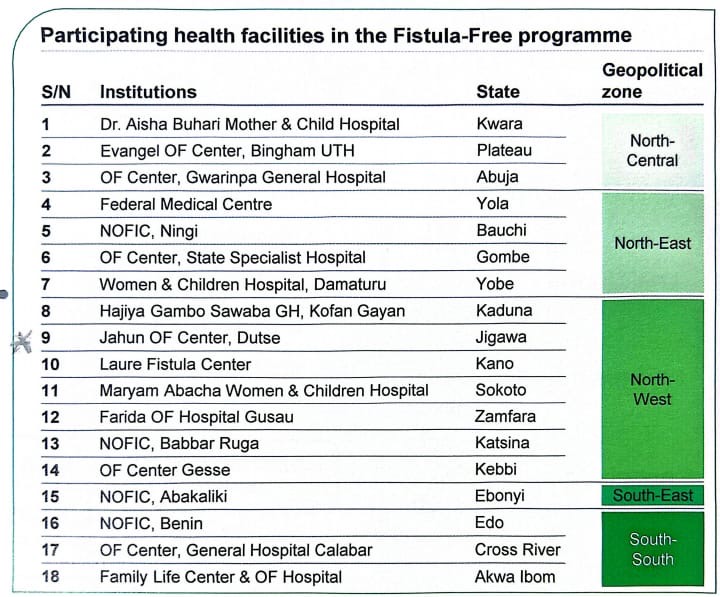Admin
Wumi Toriola reflects on disappointments before ‘Queen Lateefah’ success
Popular actress and filmmaker, Wumi Toriola, has opened up about the setbacks she faced before the success of her film, ‘Queen Lateefah.’
The film became one of the highest-grossing Nigerian films of 2024, earning N350 million at the box office.
In an interview with The Nation, Toriola revealed that the journey to making ‘Queen Lateefah’ was not without challenges, as she encountered disappointments and delays before finally bringing the project to life.
“I would have shot ‘Queen Lateefah’ four years ago, but it didn’t happen. I had hitchhiked with my story, and I wasn’t completely satisfied, so I kept rewriting it. I faced disappointments, but what I’ve learned is that whenever you come out, just come out well. The place of preparation was helpful for me,” she shared.
Despite the obstacles, the actress is now celebrating the film’s overwhelming success, acknowledging that the long wait and meticulous preparation ultimately paid off.
Looking ahead to 2025, Toriola hinted at bigger projects and major collaborations.
“We are expecting something huge—more collaborations, but in a big way,” she revealed.
With ‘Queen Lateefah’ setting a high bar, Toriola also expressed the pressure of surpassing her record. “It makes me feel great and at the same time gives me a lot of responsibility, because one will want to get better. Beating that record is a lot of responsibility,” she stated.
[TheNation]
Ex-gov Dickson, opposition senators rally support for suspended Natasha
A former Bayelsa State Governor, Seriake Dickson, has solicited support for Natasha Akpoti-Uduaghan.who was suspended from the Senate on Thursday.
Leading a delegation of senators from opposition political parties to visit Natasha at her home on Friday, Dickson said his engagement with the tax reform bills kept him away from the Senate proceedings on the day of Natasha’s suspension.
Dickson said as humans, senators have their low and high moments “and it is a tradition for Senators to support each other during these moments.”
“The public may recall that, for the past three days, I was attending the three-day workshop on the Tax Reform Bills which started on Wednesday, 5th of March and ended this evening, March 7.
“This is why I was not available yesterday to sit as a member of the Committee on Ethics, Code of Conduct, Privileges and Public Petitions in respect of the issues concerning our colleague Distinguished Senator Natasha Akpoti Uduaghan’s suspension, haven been assured by the Committee Chairman that the hearing would hold on Wednesday the 11th of March for which notices had already been issued. I was not notified of the emergency seating yesterday.
“This evening, after concluding the retreat, I led a delegation of some senators of opposition parties on a visit to our colleague Senator Natasha and met with her and her husband at their home.
“We offered words of encouragement, prayers and advice on a quick resolution of the issues surrounding her suspension,” he said.
“Having heard more from her and her husband for the first time, I will discuss with other colleagues on how to intervene and engage with the leadership of the senate to resolve the issues as soon as possible,” he added.
Akpoti-Uduaghan was suspended on Thursday for six months after she refused her new seat in the upper legislative chamber.
The dispute escalated into allegations of sexual harassment by the Kogi senator against Senate President, Godswill Akpabio.
Her suspension has sparked widespread debate and criticisms, particularly from women’s rights groups and civil society organisations.
The Peoples Democratic Party has condemned Akpoti-Uduaghan’s suspension, saying the move reeks of a grand cover-up attempt from Akpabio.
Netanyahu urged to implement Gaza deal in full
More than 50 freed Israeli hostages urged Prime Minister Benjamin Netanyahu to fully implement the Gaza ceasefire deal and secure the release of those still held in the Palestinian territory.
“We who have experienced the inferno know that a return to war is life-threatening for those still left behind,” a group of 56 freed hostages said in a letter posted on the social media platform Instagram on Friday evening.
“Implement the agreement in full, in one single manoeuvre.”
Among those to sign the letter was Yarden Bibas, whose wife and two young sons died while held captive in Gaza.
Their plea came as Hamas released a video showing Israeli hostage Matan Angrest alive, footage that his family said had left them “shaken”.
In the footage, Angrest, who turned 22 in November, also calls on the Israeli authorities to implement the second phase of the Gaza ceasefire deal.
The first phase of the Gaza ceasefire ended on March 1 after six weeks of relative calm that included exchanges of Israeli hostages for Palestinian prisoners, though hostilities have not resumed.
While Israel has said it wants to extend the first phase until mid-April, Hamas has insisted on a transition to the second phase, which should lead to a permanent end to the war.
Of the 251 hostages taken by Palestinian militants during the 2023 attack on Israel, 58 remain in Gaza, including 34 the Israeli military has said are dead.
On Saturday, a high-level Hamas delegation is expected to hold talks with Egyptian officials over the second phase of the ceasefire, two senior Hamas officials told AFP the day before.
“The delegation will meet with Egyptian officials on Saturday to discuss the latest developments, assess progress in implementing the ceasefire agreement and address matters related to launching the second phase of the deal,” one official told AFP.
During its talks with Egyptian mediators, the Hamas delegation will demand that Israel “implement the agreement, begin negotiations for the second phase and open the border crossings to allow humanitarian aid into the Gaza Strip,” he said.
The Palestinian militant group wants a “comprehensive agreement that ensures a permanent and complete ceasefire,” the other official said.
He said Hamas’s demands for the second phase include a full Israeli withdrawal from Gaza, an end to the blockade, the reconstruction of the territory and financial support based on the decisions of this week’s Arab summit in Cairo.
He also said that Hamas was ready to “negotiate a prisoner exchange to release all Israeli prisoners including those with American citizenship”.
AFP
[OPINION] Akpabio’s Fear Of the Unknown - Emmanuel Aziken
Nigeria joins the world in celebrating International Women’s Day with gender activists mourning the decimation of their numeral strength in governance.
The 1999 Senate had three women: Senators Florence Ita-Giwa, Stella Omu, and Khairat Gwadabe. However, 25 years later, it is a mark of the nation’s disrespect for gender equality that the IWD would be marked with only three women as senators in a chamber of 108 senators. Senator Natasah Akpoti-Uduaghan, who could have been the fourth female senator, was on Thursday suspended from the chamber in what many have described as the most repressive exertion of testosterone in the chamber since 1999.
According to the Senate resolution, she should not present herself as a senator of the Federal Republic anywhere.
With women constituting just 3.6% of the 10th Senate and another 17 women in the 360 House of Representatives, representing 4.7%, there is no doubt that Nigeria falls short of gender balance in parliament.
As of 2024, the average representation of women in African parliaments was 26% with the majority of the countries having failed to attain the 40% benchmark for gender balance.
Only five countries, Rwanda with 61% of parliamentarians being women, South Africa with 46.7%, Namibia with 44.2%, Mozambique with 42.4% and Ethiopia 41.5% met the mark.
It is remarkable that Nigeria was at one time improving in its gender representation index with about 10 females in the Senate while the Peoples Democratic Party, PDP was in power.
However, since 2015 that figure has progressively decreased to the level it is today in damning rebuke of Nigeria’s assertions on the Beijing Conference of affirmative action as chorused exactly 30 years ago.
Rwanda, South Africa, and Namibia, which topped the list in gender balance, also came in the top half of the Mo Ibrahim Governance Index, proving to some degree that women representatives in government help to promote good governance.
There is no doubt that the disappearance of women in parliament is correlated to the increasing bastardisation of the electoral process in the country. More women, like many faint-hearted men, have despaired over the intrigues and violence that lead to the election of our lawmakers.
Only the women who can fight like men are able to scale through the emotional and physical skirmishes that is called election in Nigeria. That perhaps explains the controversial claims of Senator Florence Ita-Giwa when she poohpoohed the claims of sexual harassment that Senator Natasha Akpoti-Uduaghan raised against Senate President Godswill Akpabio.
According to Ita-Giwa, any woman who can survive the intrigues to win an election into the Senate cannot talk about sexual harassment! That is still a controversial claim, though.
So as Nigeria marks the International Women’s Day today, there is bound to be a particular focus on the Senate and deeper interrogation of the issues that led to the six months suspension of Mrs Akpoti-Uduaghan from the Senate.
The allegation of sexual harassment brought by her against Akpabio was the first time such an issue would be brought against a presiding officer since the advent of the Fourth Republic. It is, however, not true that the Senate has been very clean of sexcapades. Lurid tales of illicit affairs occur, especially when Senators go on retreats with some ad-hoc committees reportedly being mandated to arrange young ladies for the comfort of male senators.
In one such retreat many years ago, a presiding officer was reportedly slapped by his wife who saw him entangled with a lady while the male senators were ‘communiquing.’
The jury is still out there as to the transparency and probity embarked by the 10th Senate in dealing with the allegation brought against Akpabio by Akpoti-Uduaghan.
This case, along with other pernicious legislative conduct of the 10th Senate has further diminished the institution. The crass disobedience to a court order and the rush to indict and punish the female lawmaker do not portray the Senate in a good light.
While many believe that Akpabio may indeed be innocent of the allegation made by Akpoti-Uduaghan, the rush by the Senate to punish her was largely indecorous. Akpabio could well have appeared before the Senate investigative committee and dared Akpoti-Uduaghan to produce her evidence.
The fear is that Akpabio did not want to go that route simply because he may have been afraid of the eruption of other unpalatable issues between him and Akpoti-Uduaghan, which are essentially not relating to sex.
As Nigerians have been made to recall, the suspended senator’s husband, Chief Emmanuel Uduaghan had been a long-standing family friend of the Akpabios. Their relationship predated the marital engagement between Uduaghan and Natasha. Akpabio confessed to attending and sleeping over during the marriage in Kogi State.
Indeed, Akpabio’s communication strategist, Mr Ken Okulugbo, while defending his principal on Channels Television on Thursday night confessed that he was recommended for his job by Chief Uduaghan.
So, being top players in the Nigerian political space, there is no doubt that the Akpabios and Uduaghans would have shared secrets and collaborated in their respective journeys to dominance in their political and business spaces. Along the way, they would have known one another’s unpalatable issues.
So, one conspiracy theory emerging is that the Senate President brought the weight of his powers on Natasha not because he was guilty of sexual harassment of a family friend but because of the fear of the unknown!
[OPINION] A Letter to Speaker Meranda - Ugoji Egbujo
You were the deputy speaker. Then, you became the first female speaker. And now you are the first speaker to become a deputy speaker in Africa. Madam, it’s not your fault but you need to quit. Your middle name is not Rollercoaster
When Obasa was removed, lawmakers said he was corrupt. If it were in the 18th century, they would have looked for a guillotine. They shouldn’t do this to themselves. It’s a most despicable capitulation. They said he built a gate with millions upon millions. They said he was a bad example to our children. Following the many vociferous allegations of corruption and high-handedness, 32 out of the 40 Lagos lawmakers voted to remove him. A removal can’t be more unanimous. They said his removal was good riddance to bad rubbish. That was last month.
Now, the same Obasa has returned. And rather than ignominy, he has cornered glory. You have succumbed to intimidation and resigned to allow the perfidy. You can call it loyalty to your party leaders. You can call it party supremacy. Beautiful euphemism. Others call it Baba sope. You were almost an Amazon. Sadly, you all turned out lily-livered.
Collectively, you lamented the invasion of the hallowed legislature by the DSS. Was that your leaders in trying to whip delinquent children into line? The DSS later said they had come to provide security. But you knew what they came to do. And you and your colleagues swore to resist the transgressions. How, then, did you chicken out without a whimper?
You had sneered as Obasa besieged the legislature with a gang of policemen to forcibly enter it. Do your leaders behave like area boys? Do they have any regard for the rule of law? If this was just leaders persuading followers, why the easy recourse to state banditry? All the lawmakers pointedly condemned both invasions as rape and vowed to resist the affront to democracy. Irked by the abomination, the people stood to support you against your oppressors. Then you all chickened out. The international community is amused.
When Obasa returned from overseas and started to thump his chest, many had feared for you. Because if the drummer of the strange rhythm he was dancing to was in a bush in Abuja, then the entire House of Assembly would need courage to avoid humiliation. But you all rose to the occasion to a cost the filthy meddle some hands of the unseen intruder with moral defiance. And having announced your readiness to assert yourselves like free men and women who have broken their yoke, this capitulation is unpardonable cowardice.
A man overruled an entire state legislature. In his youth, he had rebelled against autocracy. Now he is the Citadel, the fortress of feudalism. So he can send some oldmen to deliver an ultimatum to the lawmakers, to ask them to lick their vomitus. Rather than pack up and run away, if they were too weak to fight, the lawmakers sat and started to weep helplessly in the open. The same people who had collectively vowed to defend their dignity and democracy were cowering and crying like babies. They endured the torment of going through the gut-wrenching ritual of re-electing Obasa. None of them covered his head with a tattered basket and spat some inventive at the oppressor. None of them had the balls to walk away. They were scared of the godfather.
Some said they were crying for you, Meranda. But nobody is deceived. They were reduced to houseboys. Presumptuous houseboys. They were made to re-elect Obasa, who they had deceived as unfit to lead. Meranda, you stepped out for him to step in. You need to step away. Your CV now reads like it was written in Oluwole. The centre of excellence has been defiled. It stinks
Make no mistake, Madam deputy speaker, it’s not party supremacy. It’s party destitution. The party has been castrated. Otherwise, there is no manifestation of party supremacy greater than 75% of the legislators and their constituents have their way on who becomes speaker. The party can weigh in and influence outcomes. But the party cannot make an entire legislature swallow its vomitus in the open like this. The real party spoke through the legislators. But one man overruled the party. Party supremacy is not a nebulous concept which can be used to convert lawmakers into errand boys of the godfathers. It is not an autocratic spanner. It exists to foster inclusion and democratic participation and not install a civilian dictatorship through the backdoor.
When you became speaker we saw you herd the lawmakers to the GAC to receive blessings. You said they blessed you. We said you were subjecting the legislative arm of government to the dictates of a cabal. Now you know. That fanciful GAC is a device in the hands of one man to make his dictatorial control of the state look collegiate. The subterfuge has been exposed. The party is decidedly a one-man show.
Madam, you surrendered the mandate of the people. You were not an acting speaker. Throw in the towel, madam. Your return to your old seat is a disservice to womanhood. You cannot endorse this shenanigan by playing the fool. Your dignity matters. Your health matters too. Your continued presence in that assembly will damage not just your mind but public health. The Return of Obasa is a head-spinning drama. Disappear from the House, madam. So that the public can catch their breath.
E jor ma. You are too legit not to quit. Eko oni ba je o
You’re very ugly, Ronaldo tells lookalike fan
Al Nassr forward Cristiano Ronaldo has made headlines after bantering with his lookalike fan.
The all-timeleading goal-scorer in football told the fan on Friday at the Al Awwal Park in Riyadh, Saudi Arabia that he was “very ugly”.
Ronaldo was alongside his teammates, near the touchline, doing the pre-match warm-up, as Al Nassr was set to take on Al Shabab in their Matchday 24 of the Saudi Pro League 2024/25 season.
“Bro you don’t look like me (x2), you’re very ugly,” said Ronaldo.
“You are the best bro, wallahi,” said the lookalike fan.
Although Ronaldo scored his team’s second goal, it was a frustrating game for Al Nassr as they were held 2-2.
[Vanguard]
FULL LIST: FG designates 154 facilities for free obstetric care, 18 VVF surgeries
Ali Pate, minister of health and social welfare, says the federal government has designated 154 health facilities nationwide to provide free treatment for women with obstetric complications.
Pate made the announcement on Friday during his appearance on ‘Politics Today’, a programme on Channels Television.
The minister also announced 18 centres across the nation for free treatment of vesicovaginal fistula (VVF).
An obstetric complication is a difficulty or abnormality that arises during the process of labour or delivery.
Obstetric complications are disruptions or disorders that can occur during pregnancy, labour, delivery, or the early postpartum period, affecting the health of the mother or baby.
Common examples include preeclampsia, gestational diabetes, preterm labour, and postpartum hemorrhage.
Pate said the health and well-being of Nigerians are fundamental to President Bola Tinubu’s vision, prioritising reduced maternal deaths by ensuring no woman dies due to inability to afford treatment.
See full list below







[OPINION] New Insights Into “Badamasi,” “Gbadamosi,” and IBB’s Paternal Heritage - Farooq A. Kperogi
Former President Ibrahim Badamasi Babangida’s autobiography triggered questions about the onomastic etymology of “Badamasi,” his former last name, which appears to share historical and semantic kinship with the Yoruba “Gbadamosi.” It also activated interest in his paternal heritage about which he has been strategically coy, which I captured in my last column.
Because I know that the best system of inquiry for facts is necessarily question-oriented, self-critical, and cumulative, I shared a perspective I had heard about the provenance of Badamasi but expressed doubts about its reliability and historical accuracy and invited further reflections from others.
Saturday Tribune editor Lasisi Olagunju took up the challenge and, relying on insights from the late Sheikh Adam Abdullah El-Ilory, proposed that Badamasi originated from Ghadames (sometimes spelled Ghadamis), a historic Berber town in what is now Libya.
The town’s citizens are called Ghadamisi. It’s in line with the Middle Eastern practice of adding “i” to the end of the names of villages, towns, cities, and countries to form demonyms. Bukhari (which we domesticated as Buhari in Nigeria), for instance, means a native of the town of Bukhara, now in Uzbekistan, a West Asian nation that used to be a part of the Union of Soviet Socialist Republics (USSR).
Olagunju also referenced a fawningly Anglophilic, pro-colonial autobiography written in Arabic by a certain Abd Allah el-Ghadamisi, who arrived in Kano in 1903, titled, Your Humble Servant: The Memoirs of Abd Allah Al-Ghadamisi. He wondered whether this might be the book IBB mentioned as his grandfather's favorite and that inspired him to name his son after its author.
He then suggested that the Yoruba Gbadamosi is more faithful to what he thinks is the original form of the name than the Hausa Badamasi since the voiced labial-velar plosive “gb” found in many Niger Congo languages, including Yoruba, is closer to the voiced uvular fricative “gh” in Arabic.
Well, Olagunju’s proposition appears to suffer a factual collapse when it is burdened with the weight of historical, chronological, and even sociolinguistic evidence.
First, anyone who reads Professor Razaq ʿDeremi Abubakre’s 2017 book chapter titled “Stefan Reichmuth’s Wanderings in Arabicized and Islamized Yorubaland” will come across an Ilorin Muslim scholar and poet by the name of Badamasi “from Ile Saura, Agbaji, Balogun Ajikobi Ward, who was one of the first people to produce Yoruba poetry in Arabic script (p.373).” He died around 1891.
This suggests that even Yoruba Muslims have borne the name Badamasi since at least the 1800s, years before Abd Allah el-Ghadamisi appeared in Kano.
Second, it is unlikely that Abd Allah el-Ghadamisi’s autobiography is the book IBB’s grandfather was fond of and that students of Arabic in Hausaland read for pedagogical and spiritual nourishment because the commentary on the book by Muhammad S. Umar and John O. Hunwick, which Olagunju references, describes the book as betraying “imperfect knowledge of written Arabic” and full of “simple errors of Arabic grammar.”
Such a book can’t be a model that Islamic scholars venerate and teach. In any case, it wasn’t a piece of Islamic scholarship. The memoirs, Umar and Hunwick point out, “construct a discourse that portrays colonialism positively through a particularly laudatory proclamation of the good deeds of colonial authorities….”
Third, Olagunju’s claim that “Because, sometimes an author gets more famous than his work, al-Ghadamisi’s name appears to have overwhelmed the book’s title” doesn’t seem to be true. Only one copy of Abd Allah el-Ghadamisi’s book has survived, according to Umar and Hunwick.
Fourth, although traders and Islamic scholars from Ghadames have lived in Hausa land since at least the 16th century, sociolinguistic evidence suggests that it is implausible for Hausa speakers to domesticate the Arabic phoneme “gh” to “b.”
When Hausa speakers borrow Arabic words with the phoneme “gh,” which doesn’t occur naturally in Hausa, they adapt it to "g" (and occasionally to “k”) but never “b.” So, it’s socio-linguistically improbable that Ghadamisi would ever become Badamasi to Hausa speakers. It would most likely be Gadamisi.
Now, what might be the root of Badamasi? Someone on Facebook by the name of M.Y. Kabara (I wonder if he is a progeny of the famous Nasiru Kabara family in Kano who died in my final year at Bayero University) pointed me to Arabic sources that seem to definitively show that the name Badamasi owes its presence in (northern) Nigerian Muslim onomastic universe to an Egyptian poet by the name of Muhammad bin Ahmed bin Ismail bin Ahmed Al-Sharaf Al-Badmasi Al-Masri. (Miṣr is the Arabic name for Egypt).
He was born in 1808 AH (equivalent to around 1405) in the small village of Badamas and died in Mecca at the age of 40. He was famous for a book of Arabic poetry he wrote in praise of Prophet Muhammad (SAW) titled al-Qasīdatul Mukhmasah, which is very popular with Sufi Muslims and Arabic students in (northern) Nigeria.
I am certain that it’s the book IBB’s grandfather loved so much that he named his son after it—like many people in the North did and still do.
Kabara pointed out to me that because “every quintet in Arabic poetry can be called ‘mukhmasah,’” the book of poetry has come to be known by the name of its author to differentiate it from similar works.
According to Dr. Ihab El-Sherbini, author of the book Stories of Mansoura's Streets, Badamas, the poet’s hometown, used to be called “Potamos," which means “river,” but that Copts (descendants of ancient Egyptians who are now mostly Christians that are associated with the Coptic Church) called it Badamos. After the Arab conquest of Egypt in the 7th century, Badamos evolved to Badamas.
Over time, the Badamas village ceased to be territorially independent. It’s now a neighborhood of the Egyptian city of Mansoura.
Based on this new knowledge, I am prepared to suggest that Gbadamosi and Badamasi are mere onomatological false friends, that is, they are names that sound alike but that are actually different and descended from different sources.
I suspect that the Yoruba Gbadamosi traces descent from Ghadamisi, most probably from Abdallāh b. Abī Bakr al-Ghadāmisī, a 17th-century Arabic poet and Islamic scholar born in Timbuktu who wrote the famous Manāhij al-Sālikīn fī Manāfiʿ al-Qurʾān al-Karīm (“Paths of the Seekers to the Benefits of the Noble Qur’an”) that is popular with West African Sufis.
Curiously, the resolution of the etymology of IBB’s middle name coextends with new hints I’ve encountered about the probable ethnic identity of his paternal ancestry.
The village of Kumurya in Kano where IBB told a biographer his paternal roots are located was founded by the Agalawa, a historical trading community in Hausaland, originally of Tuareg (Berber) stock who migrated into the Kano region in the 18th century.
Though now fully assimilated as a sub-group of the Hausa people, the Agalawa trace their ancestry to nomadic Tuareg origins in the southern Sahara. I owe this insight to Rabiu Isah Hassan who first pointed it out to me on Facebook and provoked me to read further.
In his 2005 book titled Ecology and Ethnography of Muslim Trade in West Africa, Paul E. Lovejoy points out that early Agalawa immigrants in Hausaland occupied a lowly social status because “Most had been enslaved from Sudanese populations (p. 16).” They were derisively called “Bugaje” (is the famous Dr. Usman Bugaje of Agalawa origins?) as a collective plural and “Buzu” as a singular form.
Over time, they acculturated, dominated commerce, became prominent in Islamic scholarship, and have now become indistinguishable from the native Hausa population, except that they tend to have a lighter complexion than Hausa people, which causes many people to mistake them for Fulani.
Is IBB aware of this history of his paternal ancestry but chose to conceal it for fear of exoticizing and alienating himself, especially in the eyes of southerners who tend to delegitimize people’s Nigerian origins when they find out that the ancestral origins of (mostly northern) people can be traced to spaces outside what is now Nigeria?
No northerner would question the legitimacy of anyone’s Nigerianness because of the accident of the location of their distant ancestral roots. It's a consequence of the originary syncretism of modern northern identity. We are all mixed with all sorts of stemma from a vast array of places because we were never an insular, landlocked people.
Many of Kano’s prominent merchant dynasties, for example, have Agalawa roots, a famous example being the family of Alhaji Alhassan Dantata, who was West Africa’s richest man in the early 20th century. Since Aliko Dangote’s mother is from the Dantata family, it means he is at least half Agalawa. He himself might even be ancestrally Agalawa.
What’s there to conceal about this, especially because our heritage—ethnicity, linguistic group, even religious traditions—is merely incidental to us. We didn’t choose it, so there is no basis to be proud or ashamed of it.
[OPINION] NASENI’s “Irrigates Nigeria” Project - Okey Ikechukwu
Our people say that there is nothing wrong with a man irrigating his farmland, provided he is not fetching the water from his neighbour’s water pot, or rechanneling the village stream. Our people also say that the beauty of community farming is that every member of the community benefits from every aspect of the enterprise, as distinct from when one kindred or the other is made to suffer unduly. All must pay attention to the soil type, the topography, the water sources, the seasonal water availability and priority crop types.
Put more simply, to construct a dam in order to get more water, or to draw water for irrigation, is to do something that will invariably affect the lives of folks living downstream. If you do not pay attention to the latter fact, but focus instead on the episodic benefits of the water you are drawing to create a haven of greenery elsewhere, all will not be well in the long run.
Take, for instance, the case of someone who wants to travel from Abuja to Taraba State today. He flies to Yola and then makes a four-hour road trip to Jalingo, the state capital. While on the road journey, he is counting how many bridges are spanning dry rivers. Yes, dry rivers without any water at all. And these rivers were not always like that. The story is the same in many parts of northern Nigeria.
If you think it is a northern Nigeria problem, then head southwards from Abuja by road. Get to Lokoja and drive past it. Continue all the way beyond Ajaokuta to Anyigba. While you are at it, count the number of rivers that are now tiny streams in the middle of a vast plains. Also check out how many rivers that once spanned some 100 to 200 meters of water across are now without water during the dry season. Even at the peak of the rainy season, they are pitiful shadows of what they used to be.
Or would you rather have us talk about the Onitsha end of the River Niger? It used to be a massive body of water. Not anymore! But more of that later.
These were the thoughts on my mind when, a few days ago, I watched the National Agency for Science and Engineering Infrastructure (NASENI) flag off the Irrigate Nigeria Project. The initiative is designed to ensure that farmers in some parts of the country achieve three farming cycles every year. Such a transformative endeavour is expected to positively impact food availability, by enhancing mechanized outcomes at TIAMIN Rice Farm, Udubo, Gamawa Local Government Area of Bauchi State.
The projected short, medium, and long-term benefits would include job creation, increased agricultural output and overall improvement in national productivity. No one can fail to see the good intentions behind this project, especially as a response to the problem of food insecurity.
This good initiative, which is being jointly implemented by NASENI and the Renewed Hope Infrastructure Development Fund (RHIDF), needs a thoroughgoing holistic approach, so that the gains would be lasting ones. Since it is being executed with the participation of the private sector, there is need to ascertain the critical roles of the Environment Ministry, Nigeria Inland Waterways authority (NIWA) and the Ministry of Water resources in all of this.
Let us note that NASENI’s Executive Vice Chairman (EVC) and Chief Executive Officer (CEO), Mr. Khalil Suleiman Halilu, said at the flag-off that the initiative is capable of revolutionizing agriculture in Nigeria. In his own words, “…the goal of Irrigate Nigeria is to transform Nigeria’s agriculture through the provision of sustainable irrigation systems that empower farmers to achieve year-round farming, and by extension, increased productivity and reduce food prices”. That is correct.
Simply put, this project is a way of making modern irrigation techniques, and also modern equipment for dry-season farming, available to farmers. The major pillars of the project include the following, among others: (1) The deployment of centralised NASENI irrigation systems to support farming clusters in the participating communities, (2) The provision of input – enhanced seeds, (3) The provision of fertilizers, (4) Technical support to the participating farmers.
With the project’s goal of enhancing food security, by equipping farmers with modern irrigation systems and dry season farming tools, the ultimate goal is obviously year-round productivity; as earlier stated. The project is planned to run on a commercial basis, and there’s the worry. Will the farmers not be overburdened?
NASENI says no, promising that “… the repayments by farmers for the support being provided will be in the form of convenient portions of their harvests, like rice paddy”. The repayments are to be “…pooled into a strategic food reserve that will help to stabilize commodity prices, and also be available for institutional sale and for export”.
All said, no one can fault the good intentions, projected positive outcomes and the expected impact on food availability and food prices.
But, going back to the issues with which we flagged off today’s conversation, there are concerns which must be put on the table here. I refer us to two articles which appeared on this page within the last seven years. The first, titled “Onitsha Port and its Enemies” came out on February 5, 2017. The second, titled “Onitsha Port and Other Matters”, was published here on April 13 2024. The two articles emphasized the desirability of an inland port in Onitsha, to ease trade for the South East trades and businessmen, while pointing out the challenge of water availability.
The latter of the two articles said: “One of the major overlooked, and largely unacknowledged, problem is the probability of not ever really getting enough water for the primary business of a port. You need water for a river port and the Onitsha end of the river Niger does not have enough. Dredging is a good idea, but it will give you a bigger ditch and wipe out the means of livelihood of water dependent local economies”.
The article continued: “All things considered, the challenges that come to mind regarding the proposed Onitsha River Port are: (1) How the river dams along the Niger, Benue and their many tributaries have reduced available water at onitsha by over 68%; (2) Possibly unrealistic projections about the prospects of the project; (3) The credibility of some of the existing Environmental Impact Assessment (AIE) reports, especially against the background of climate change and other environmental factors; among other factors”.
The same article pointed out that the dams built across the rivers Niger and Benue, and their tributaries, over the years have reduced the overall water volume. You now have small sand islands, and unprecedented siltation, at the Onitsha end of the river. That is why the NASENI Irrigate Nigeria project must be approached by working in sync with the Federal Ministries of Agriculture and Natural Resources Environment, blue economy and the Nigeria Inland Waterways authority (NIWA).
The current global response to the devastating impact of dams and water diversion on people and the environment within the past 60 years has been overwhelming. We all know that dams have altered ecosystems, ruined food chains and obliterated local economies for hundreds of thousands of kilometres of waterways all over the world. That is Dams and diversion or all, or part of, natural bodies of water, for electricity, farming, etc.
That article of last April said: “It is on record, for instance, that massive fish populations were killed on the Snake River, Idaho, in the US by dam construction; leading to the decimation of salmon species, among others. An Idaho State Senator, Frank Church, who originally supported dam building later rose in defense of natural waterways and spoke against dams. It was the same Frank Church who, after he saw the damage to the environment, eventually wrote the Wild and Scientific Rivers Act, passed in 1968”.
Over 22,000 kilometers of free-flowing rivers in the US are protected by Frank Church`s Act as I write. Meanwhile our natural waters and waterways are available for all comers. The fate of communities displaced by dams all over Nigeria today is rarely a topical issue, yet it is a real problem that has lingered for decades in many places.
The concern about water and free waterways is such that the world is focusing on transboundary cooperation between nations for conscious and deliberate management of the ecosystem and water volume throughout the length of major rivers. Are we doing the same in our country? The conflict between China and Thailand over development on the Lancang/Mekong River says a lot about what is going on all over the world in connection with waterways today.
To think that the government of New Zealand has gone so far as to “recognize” the Whanganui river by giving it the same constitutional rights as a person? This was done as a way of showing that free-flowing rivers have great impact on food security, water access, biodiversity conservation and propagation of the overall global ecology.
All said, NASENI must be sensitive to the impact of its new project on local economies outside the farming communities from where, and to where, the waters are coming. It must also be seen to be working in sync the Nigeria Inland Waterways Authority, the Ministries of Environment, Water resources and Blue Economy on this initiative. That is the only way to derive, and maintain sustainable gains in the Irrigate Nigeria project.
Quote
NASENI must be sensitive to the impact of its new project on local economies outside the farming communities from where, and to where, the waters are coming. It must also be seen to be working in sync the Nigeria Inland Waterways Authority, the Ministries of Environment, Water resources and Blue Economy on this initiative. That is the only way to derive, and maintain sustainable gains in the Irrigate Nigeria project.
[ZOOM MEETING] City Talks with Reuben Abati: IWD 2025: Empowering Women for a Sustainable Future - Abiola Akiyode-Afolabi
Programme: City Talks with Reuben Abati
Time: 12:00pm
Guest : Dr Abiola Akiyode-Afolabi
Lawyer & Civil Rights Activist.
Topic: IWD 2025: Empowering Women for a Sustainable Future
Date: March 8th, 2025
Join Zoom Meeting
https://zoom.us/j/92877141732?pwd=VEJWb29OL2VVekZUTHRpdWYxK0xxZz09
Meeting ID: 928 7714 1732
Passcode: 600206




![[OPINION] Akpabio’s Fear Of the Unknown - Emmanuel Aziken](/media/k2/items/cache/03e7eed17562e90e065e9a02e0d6fac0_Generic.jpg)
![[OPINION] A Letter to Speaker Meranda - Ugoji Egbujo](/media/k2/items/cache/e6662f15b874e49b5be7c373d0cd1b6f_Generic.jpg)


![[OPINION] New Insights Into “Badamasi,” “Gbadamosi,” and IBB’s Paternal Heritage - Farooq A. Kperogi](/media/k2/items/cache/0afc24fe823cd089e6d2f91563db6b8e_Generic.jpg)
![[OPINION] NASENI’s “Irrigates Nigeria” Project - Okey Ikechukwu](/media/k2/items/cache/42e43e412703a6d44289051f7cf33689_Generic.jpg)
![[ZOOM MEETING] City Talks with Reuben Abati: IWD 2025: Empowering Women for a Sustainable Future - Abiola Akiyode-Afolabi](/media/k2/items/cache/1b60588bef24b0c14a128dee91fb14b1_Generic.jpg)